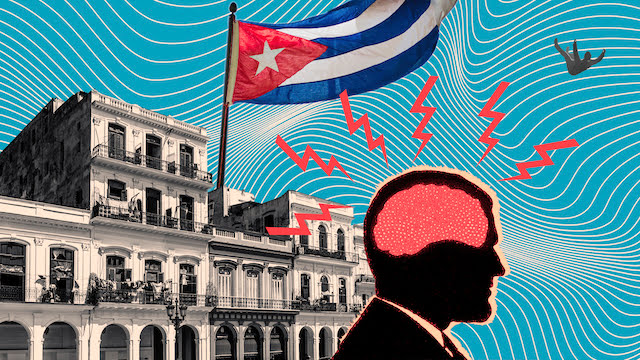US Officials Perplexed By Havana Syndrome
The Havana syndrome, a mysterious, neurological “anomalous health incidents” that have befallen American diplomats, military personnel and intelligence officials, has continued to perplex officials.
Though the National Academy of Sciences said the symptoms “are consistent with the effects of directed, pulsed radio frequency (RF) energy,” officials are at a loss about the source and the masterminds.
The Havana Syndrome took its name from the Cuban capital, after a rash of reports from U.S. Embassy staff.
The affected staff reported often debilitating symptoms, including vertigo and headaches, that can last years.
Many suspect the attacks are from a microwave or directed-energy weapon.
“I feel, still, a strong degree of humility about being able to give you a best guess, because it could be completely wrong,” House Permanent Select Committee on Intelligence Chairman Adam B. Schiff, California Democrat, told reporters last week.
Mr. Schiff said the U.S. government has not ruled anything out in terms of who or what may be causing the incidents. He said not all of the reported incidents may be “attributable to the same cause.”
“At the same time, the seriousness of the injuries and the proliferating nature of these anomalies demands are full, for the deployment of resources across the government to find out,” he said.
The U.S. has recorded over 130 cases of Havana Syndrome since 2016.
Symptom of Havana Synddrome by health.com
A report published by the National Academies of Sciences (NAS) last year breaks it all down. Most people who have had Havana Syndrome heard a loud noise and felt an intense pressure or vibration in their head, dizziness, and pain in their ear or head.
“The neurologic symptoms reported in Havana syndrome are commonly seen in concussions. The similarities are striking,” Amit Sachdev, MD, medical director in the department of neurology at Michigan State University, tells Health.
Some people said the symptoms stopped when they went to another room, and returned when they went back to the same spot when they first experienced the symptoms.
The symptoms go away soon for some people, but others have experienced chronic insomnia, headaches, and even brain damage.
“Brain damage is the one thing that seems irregular to me,” Omid Mehdizadeh, MD, an otolaryngologist and laryngologist at Providence Saint John’s Health Center in Santa Monica, Calif., tells Health.
“The others are pretty typical symptoms that we hear about with ear-related or brain-central conditions like migraines, inflammatory conditions of the inner ear, and any type of stroke.”
Pmnews















Post Comment